24th January 2014
by Peter Wertheim and Alex Ryvchin
With her Israeli settlements comments, Julie Bishop has tried to avoid acting as judge and jury on the issue.
It comes as little surprise that Foreign Minister Julie Bishop’s refusal to condemn Israeli settlements in an interview with The Times of Israel was met with unreserved hostility by her predecessor Bob Carr, the Australian Palestine Advocacy Network and, of course, the Palestine Liberation Organisation’s Hanan Ashrawi.
All three have consistently perpetuated the falsehood that Jews living beyond the defunct Israeli-Jordanian armistice line of 1949 are the predominant cause of a conflict that has raged since well before the first West Bank settlement was built.
At a time when Israeli-Palestinian peace talks are ongoing and delicately poised, Bishop’s actual statement was reasonable, indeed innocuous: ”I don’t want to prejudge the fundamental issues in the peace negotiations. I think it’s appropriate we give those negotiations every chance of succeeding.”
Significantly, Canada’s Prime Minister, Stephen Harper, has now adopted Bishop’s position of neutrality on the settlement question as a means of advancing the prospects of a negotiated peace.
Bishop’s comments in no way constituted ”uncritically siding with Israel … on the issue of settlements”, as one critic alleged. Nor did the Foreign Minister diminish the significance of the settlement issue. On the contrary, she noted that ”the issue of settlements is absolutely and utterly fundamental to the negotiations that are under way”.
Instead, Bishop prudently sought to avoid acting as judge and jury on a bitterly contested and unresolved legal question. After all, Israel and the Palestinians have themselves agreed that the question of settlements is one of the core issues to be resolved by the delimitation of a final border in the course of final status negotiations between the parties.
The attacks on Bishop also contained the sorts of distortions of international law that have become the hallmark of the anti-Israel movement. Ashrawi falsely asserted that “Article 49 of the Fourth Geneva Convention and Article 43 of The Hague Regulations … explicitly state that Israel is in direct violation of international law with its illegal settlement activities”. The Fourth Geneva Convention and The Hague Regulations make no reference to Israel whatsoever, explicit or otherwise.
However, their application to Israeli settlements in the West Bank is a serious legal question that is hotly disputed. There has never been a definitive legal determination of this question. The oft-cited International Court of Justice opinion in 2004, which APAN’s George Browning (The Age, 18/1) falsely calls a “ruling”, was delivered as a non-binding advisory opinion and is not legally determinative.
Professor James Crawford, who is one of Australia’s (and the world’s) most eminent international lawyers and is generally critical of Israeli settlements, published a legal opinion in 2012 in which he concluded that some of the settlements, such as the Nahal settlements, are “probably lawful”.
A preponderance of opinion, one way or another, by legal experts does not decide the issue. Mere opinions about the legality of the settlements do not harden into established norms simply because large numbers of eminent lawyers support those opinions, especially if other equally eminent lawyers have a contrary opinion.
Therefore, Ashrawi’s accusation that Bishop “wilfully defied international consensus” on settlements is utterly baseless. There is no such consensus. A majority is not a consensus. Australia is a sovereign nation with a democratically elected government which makes decisions according to its own assessment of Australia’s national interests. Ashrawi’s crude attempt to bully Australia with the spectre of a non-existent “international consensus” should be ignored.
On the same day as Bishop delivered her remarks in Jerusalem, her former political adversary, Julia Gillard, was speaking in another Middle-Eastern capital, Abu Dhabi. She did not refer to the settlements. Instead, she urged the Palestinian leadership to recognise Israel as the state of the Jewish people and live in peace with it. The “key to peace”, she said, is “that they accept Israel as a Jewish state. Once that is stipulated, then virtually everything can be successfully negotiated.”
Both Julie Bishop and Julia Gillard have eschewed the standard approach of Western bureaucrats to the Israel-Palestinian conflict, which is “to go along to get along” with the rest of the herd and reflexively side against Israel. Both deserve praise for rejecting such an approach as weak and wrong.
Peter Wertheim, AM, is the Executive Director and Alex Ryvchin is the Public Affairs Officer of the Executive Council of Australian Jewry.

Interview
ECAJ Head of Legal Simone Abel interviewed by Sharri Markson on SKY News
ECAJ Head of Legal Simone Abel discusses the latest on antisemitism at the University of Sydney, and the court victory that stopped the Sydney Opera House protest.





